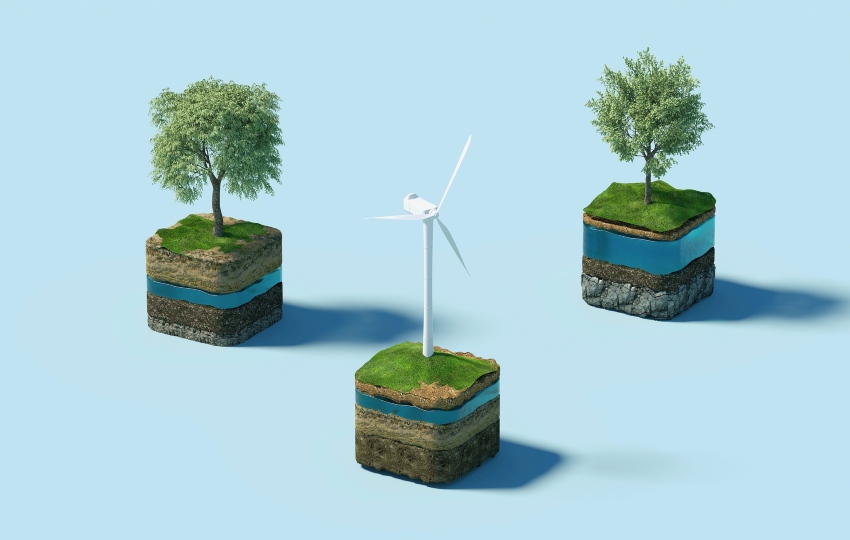“We need to slow down and rethink our focus and innovation efforts. We need to refocus our approaches and processes on the Planet and Humanity. We need to return to slower but more thoughtful innovation, driven by purpose and supported by participatory models that generate deeper engagement – from people to people. More than co-creating, we need to empower and involve citizens to (re)create our world with Nature-Based Solutions and contribute to the emergence of a positive economy based on Nature, that is, we need to conaturar® (co-natureing®)".
This was the message I shared at the conference Water & Humanity which took place in Muscat, Oman, as part of the annual event of the Global Forum, and which is now perpetuated in the Manifesto Muscat 22, which intends to draw the world's attention to the need to act, today, on our future, considering that the Planet and Humanity must always be the "Soul and Heart" of our action.
Dear reader, today I start a fortnightly column where I will try to share my experience on the need and the way for territories to promote an active governance oriented towards encouraging citizen participation in co-creation projects of Nature-Based Solutions (NBS), whether in context of Urban Regeneration, or in the Shift to a positive Economy based on Nature.
My vision, academic and business action are framed in the strategic programs of the European Commission and the United Nations, such as the Green Transition, the Circular Economy, the New European Bauhaus, the Sustainable Development Goals, among others.
We will also talk about methodologies that support these objectives, such as, for example, participatory design, co-creation, innovation ecosystems.
I believe that the diversification and development of economic activity that the Algarve Region needs must be “refounded” in these principles, methodologies, practices and objectives.
In addition to Tourism, the Algarve can be a “pioneer” and one of the first territories to drive the Change to a Positive Economy based on Nature, Circularity and Biodiversity.
We have the potential of our geography and nature, we currently have a cultural diversity that is one of the bases for cross-fertilization associated with disruptive innovation, we need a change in thinking and action by the entities that manage the territory.
Any major Change is so much more effective when it starts from the “bottom up”, that is, when pressure from citizens “pressures” public and private managers to think “differently”, to be more aware of their active role in the future that we want to leave to our children!
It is the citizens and the community who, through their participation, active citizenship, demand, motivation in the resilient defense of principles, values and our cultural heritage, can ignite a reorientation of institutions towards development strategies in the Region based on preservation and empowerment of Nature and People.
We need to invest our imagination and entrepreneurial talent in creating green industries, in human well-being in harmony with ecological well-being, in thinking about solutions for the complex techno-social systems we face such as human/machine dichotomies; machine/machine, in response to generational problems translated into an excess of technology in our lives and in the education of our children, among others.
This was one of the main messages that the working group of the European Commission of which I am a part left in one of the side events that the European Union promoted during COP27 – the United Nations Conference on Climate Change, which took place in Egypt.
With the theme of “Co-creating nature-based solutions for adapting to climate change”, we sought to convey the importance of involving all stakeholders and the community in the planning, development and implementation of Nature Based Solutions (NBS) in the territories.
Only active and dialoguing participation with citizens allows for a “common understanding” of challenges, problems and real opportunities in each of the territories. This is the only way to identify the “collective perception” of how each citizen and community feels, thinks and acts on climate change, and how they idealize possible ways to implement NBS as a solution.
For today, I leave you with the most recent definition of NBS generated at the United Nations Environment Assembly in March of this year: “are actions to protect, conserve, restore, use and sustainably manage terrestrial ecosystems, freshwater, natural or modified coastal and marine environments that address social, economic and environmental challenges effectively and adaptively, while providing human well-being, ecosystem services, and resilience and biodiversity benefits”.
Author Américo Mateus is a member of Taskforce 6 of the European Commission: co-creation of NBS; Responsible for the NBS Hub Portugal of EU NetworkNature; Partner and Senior Researcher at GUDA – Design Transitions Agency🇧🇷 University Lecturer at ISMAT; Director of TRIE – Center for Transdisciplinary Research in Innovation Ecosystems in Lusophone Teaching; Director of the Design Master for the Circular Economy at ISMAT.




















Comments